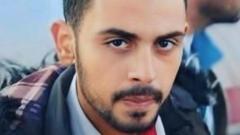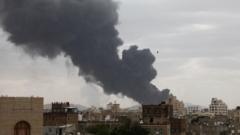In Gaza, a mother mourns her son, Rifaat Radwan, a 23-year-old paramedic fatally shot by Israeli forces while responding to a crisis. His death, along with 14 other emergency workers, highlights the perils faced by humanitarian aid providers in conflict areas and raises questions surrounding the conduct of military operations.
A Mother's Grief: The Tragic Loss of a Gaza Medic Amid Conflict

A Mother's Grief: The Tragic Loss of a Gaza Medic Amid Conflict
The heartbreaking story of Umm Mohammed, a grieving mother who lost her son Rifaat, a Palestinian paramedic, killed by Israeli troops while on a humanitarian mission.
"My heart and soul died when Rifaat was killed," says Hajjah Umm Mohammed, the mother of a Palestinian medic gunned down alongside 14 other emergency responders by Israeli troops in southern Gaza last month. Rifaat Radwan, 23, was on duty in a Palestinian Red Crescent Society (PRCS) ambulance when the convoy came under fire on the outskirts of Rafah on March 23.
"I never expected him to be killed, especially since the area was classified as 'green', indicating it was safe for ambulances," she laments. The Israeli military initially claimed the convoy acted suspiciously, with no headlights or flashing lights. However, found footage on Rifaat's phone showed their lights were operational, affirming their mission to assist the wounded amidst heavy gunfire.
"Forgive me, mother... this is the path I chose to help people," Rifaat’s voice echoes in the heart-wrenching video, recorded moments before his demise. Umm Mohammed reflects on her son's bravery, recalling that she entrusted him to God each time he headed into the complex and perilous conditions of Gaza, often assisting the wounded from northern to southern regions.
Rifaat volunteered with the PRCS following an Israeli military response to Hamas's unprecedented cross-border assault on October 7, 2023. He was known for helping transport victims for treatment through the Rafah border crossing. The day he died, he was responding to reports of casualties from an Israeli airstrike, but she never imagined he would become one of them.
A week before Eid al-Fitr, instead of celebrating with her son, Umm Mohammed and Red Cross representatives retrieved his decomposed body from a hospital in Khan Younis. She recounts the pain of being denied a last farewell, describing him as “an absolutely beautiful human being” and the primary support for his family after his siblings married.
The aftermath saw the Israeli military redefine their initial account, stating the troops had viewed the medics as potential threats due to previous interactions in the area, labeling some victims as Hamas operatives without evidence. The bodies were buried hastily to protect them from animals, remaining undiscovered for a week due to obstacles for international organizations trying to reach the vicinity.
The IDF plans an in-depth investigation into the incident following the release of the video which contradicted earlier military claims. The PRCS advocates for justice, denouncing the deaths of the paramedics as war crimes and highlighting the risks humanitarian workers face. "We need to ensure that all of those who are responsible are held to account. Without this, the crimes will continue," stressed PRCS spokeswoman Nebal Farsakh.
Another survivor, Munther Abed, described surviving the attack by hiding in the back of the ambulance, but he was later arrested and endured interrogation and torture. His account, along with the ongoing calls for accountability from the PRCS, raises serious concerns regarding the protection of humanitarian workers in conflict zones.
Over 50,750 people have lost their lives in Gaza since the onset of this conflict, marking a tragic toll that underscores the dire humanitarian implications in the wake of escalating violence. As tensions continue, the devastating cost of war weighs heavily on families like Umm Mohammed's, where the heavy burden of loss intermixed with the pursuit of justice remains resolute.




















